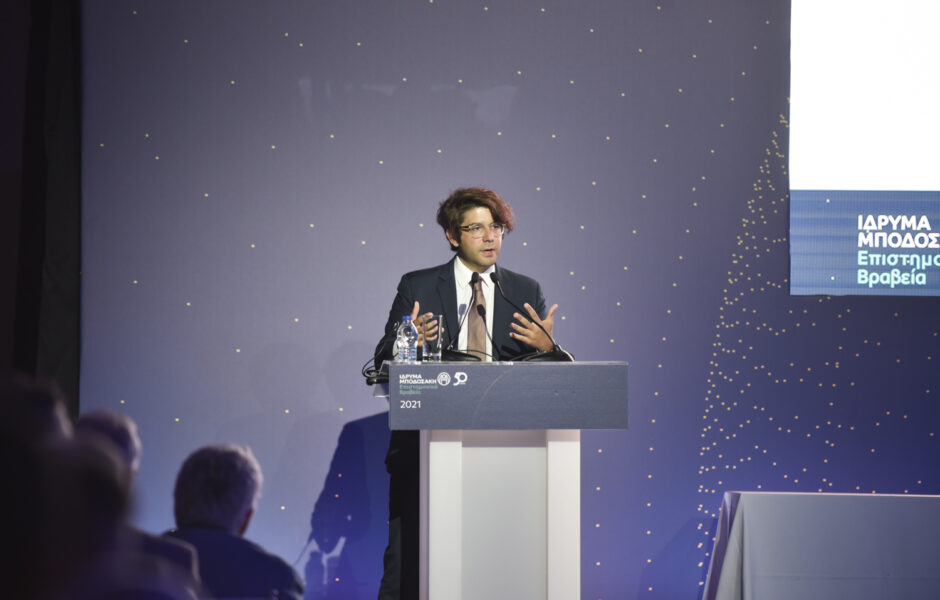Bodossaki Distinguished Young Scientist Award 2021
Academic field:
Life Sciences: Biomedical Sciences
“I feel very honoured to be one of the scientists awarded by Bodossaki Foundation. Especially so because this award comes from a Greek Foundation that acknowledges the importance of the scientific work carried out by Greek scientists in Greece and abroad.”
************************************
Thales P. Papagiannakopoulos is Associate Professor and Director of the Molecular Oncology and Tumor Immunology Training Program at the New York University (NYU) Medical School. His research focuses on the study of the genetics of lung cancer, and is aimed at developing targeted therapies.
He was born in 1982 in Los Angeles, USA and grew up in Heraklion, Crete and Athens. In 2004 he obtained a degree in Molecular Genetics from the University of Sussex. In the summer of 2004 he went to California, USA, where he worked as a researcher at the Scripps Research Institute, while since 2005 he continued his doctoral studies on a scholarship at the Department of Biology of the University of California in Santa Barbara.
After completing his doctoral studies, he worked as postdoctoral researcher at MIT’s Koch Research Centre in Boston, under the guidance of its Director, Professor T. Jacks, from 2010 to 2015. He studied the molecular mechanisms that contribute to cancer at the organ level, using indigenous models of cancer in mice. He pioneered the application of the CRISPR/Cas9 innovative technique to study the mechanism of the lung cancer genome. He developed new models of lung cancer based on the relevant clinical mutations, as well as a platform to rapidly characterize the function of genes that mutate in lung cancer and, thus, models of complex genetic subtypes observed in patients with lung cancer.
In September 2015 he was elected Assistant Professor in the Department of Pathology of the New York University (NYU) Medical School and, in May 2020, he was elected Associate Professor.
His laboratory uses genetically engineered models of mice lung cancer, which recapitulate the genetics, histological evolution, and microenvironment of tissues. Using both mouse models and human samples, he demonstrated the role of mutations in mediating the metabolic reprogramming of cells during tumour progression. His laboratory applies a combination of genetic and biochemical approaches to identify metabolic processes that can be utilized using new targeted therapies. Since the establishment of his laboratory, he has made significant progress in implementing their approaches to characterize a major genetic subset of lung adenocarcinoma with NRF2 / KEAP1 mutations.
He is the recipient of several scholarships, awards and honors, including the 2013-2014 Lung Cancer Research Foundation award, the 2013-2015 Hope Funds for Cancer Research Fellow grant, the 2011-2013 American Cancer Society Fellow grant, the K22 Career Development Award of the National Institute of Health USA, the 2015 Academy of Athens Excellence Award, the American Cancer Society Research Scholar Grant, and the R01 and MERIT R37 Awards from the National Institute of Health/National Cancer Institute USA.


